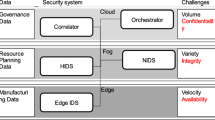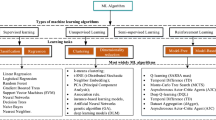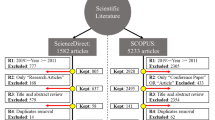Abstract
To implement a resilient manufacturing system, adaptive systems are required to respond to changes and disruptions. In this article, we present a research prototype of an adaptive production system. Adaptivity is implemented here in three components and on different levels. The first component is an adaptive robotic system that can be easily trained to pick up heterogeneous parts and place them on an autonomously guided vehicle. This component implements adaptivity at the task level. The second component is a planning system that can be used to reschedule production orders on an ad hoc basis. This system also allows the simulation of machine failures to analyze resilience. This job shop planning system implements adaptivity at runtime at the level of production execution. The third component is a modular process modeling and execution system that enables adaptivity at the process level. It supports the users in redesigning production processes with the help of a graphical user interface. The overall system is modular, with the three components being run in an adaptive, agile, and decentralized way. It forms a system-of-systems that shows resilience to several disruptive events.
Zusammenfassung
Um ein resilientes Fertigungssystem zu realisieren, sind adaptive Systeme erforderlich, die auf Veränderungen und Störungen reagieren. In diesem Artikel stellen wir einen Forschungsprototyp eines adaptiven Produktionssystems vor. Adaptivität wird hier in drei Systemen und auf unterschiedlichen Ebenen umgesetzt. Das erste System ist ein adaptives Robotersystem, das leicht und schnell trainiert werden kann, heterogene Teile aufzunehmen und auf einem autonom geführten Fahrzeug abzulegen. Dieses System implementiert Adaptivität auf Aufgabenebene. Das zweite System ist ein Planungssystem, mit dem Fertigungsaufträge ad hoc umgeplant werden können. Dieses System ermöglicht auch die Simulation von Maschinenausfällen zur Analyse der Resilienz. Dieses Job-Shop-Planungssystem implementiert Adaptivität zur Laufzeit auf der Ebene der Produktionssteuerung. Das dritte System ist ein modulares Prozessmodellierungs- und -ausführungssystem, das Adaptivität auf Prozessebene ermöglicht. Es unterstützt die Anwender bei der Neugestaltung von Produktionsabläufen mit Hilfe einer grafischen Benutzeroberfläche. Das Gesamtsystem ist modular aufgebaut, wobei die drei Systeme adaptiv, agil und dezentral betrieben werden. Es bildet ein System-von-Systemen (System-of-Systems), das Resilienz gegenüber mehreren disruptiven Ereignissen zeigt.






Similar content being viewed by others
Notes
References
BKCASE Editorial Board (2019): Guide to the systems engineering body of knowledge (SEBoK). Techreport, INCOSE - international council on systems engineering. https://www.sebokwiki.org.
Boardman, J., Sauser, B. (2006): System of systems - the meaning of of. In 2006 IEEE/SMC international conference on system of systems engineering (pp. 1–6). New York: IEEE Press. https://doi.org/10.1109/SYSOSE.2006.1652284.
Chen, C. C., Crilly, N. (2016): From modularity to emergence: a primer on the design and science of complex systems. Tech. rep., CUED/C-EDC/TR.166, Engineering Design Centre, University of Cambridge. https://doi.org/10.17863/CAM.4503.
Dubey, R., Gunasekaran, A., Childe, S. J., Wamba, S. F., Roubaud, D., Foropon, C. (2021): Empirical investigation of data analytics capability and organizational flexibility as complements to supply chain resilience. Int. J. Prod. Res., 59(1), 110–128. https://doi.org/10.1080/00207543.2019.1582820.
Fiksel, J. (2012): A systems view of sustainability: the triple value model. Environ. Dev., 2(0), 138–141. https://doi.org/10.1016/j.envdev.2012.03.015. Sustainable futures: multi-disciplinary perspectives on multi-level transitions.
Goerger, S. R., Madni, A. M., Eslinger, O. J. (2014): Engineered resilient systems: a dod perspective. Proc. Comput. Sci., 28, 865–872. https://doi.org/10.1016/j.procs.2014.03.103.
Gu, X., Jin, X., Ni, J. (2014): Resilience measures of manufacturing systems under disruptions. In ASME 2014 international manufacturing science and engineering conference. New York: ASME.
Gu, X., Jin, X., Ni, J., Koren, Y. (2015): Manufacturing system design for resilience. Proc. CIRP, 36, 135–140.
Hewitt, C. (1977): Viewing control structures as patterns of passing messages. Artif. Intell., 8(3), 323–364. https://doi.org/10.1016/0004-3702(77)90033-9.
Hosseini, S., Barker, K., Ramirez-Marquez, J. E. (2016): A review of definitions and measures of system resilience. Reliab. Eng. Syst. Saf., 145, 47–61. https://doi.org/10.1016/j.ress.2015.08.006.
Ivanov, D., Sokolov, B., Dolgui, A. (2014): The ripple effect in supply chains: trade-off “efficiency-flexibility-resilience” in disruption management. Int. J. Prod. Res., 52(7), 2154–2172. https://doi.org/10.1080/00207543.2013.858836.
Ivanov, D., Dolgui, A., Sokolov, B., Ivanova, M. (2017): Literature review on disruption recovery in the supply chain. Int. J. Prod. Res., 55(20), 6158–6174. https://doi.org/10.1080/00207543.2017.1330572.
Ivanov, D., Das, A., Choi, T. M. (2018): New flexibility drivers for manufacturing, supply chain and service operations. Int. J. Prod. Res., 56(10), 3359–3368. https://doi.org/10.1080/00207543.2018.1457813.
Kamissoko, D., Nastov, B., Benaben, F., Chapurlat, V., Bony-Dandrieux, A., Tixier, J., Amendeep, A., Daclin, N. (2019): Continuous and multidimensional assessment of resilience based on functionality analysis for interconnected systems. Struct. Infrastruct. Eng., 15(4), 427–442. https://doi.org/10.1080/15732479.2018.1546327.
Koenig, P., Mangler, J., Rinderle-Ma, S. (2019): Compliance monitoring on process event streams from multiple sources. In 2019 international conference on process mining (ICPM) (pp. 113–120). New York: IEEE Press.
Kusiak, A. (2019): Fundamentals of smart manufacturing: a multi-thread perspective. Annu. Rev. Control, 47, 214–220. https://doi.org/10.1016/j.arcontrol.2019.02.001.
Kusiak, A. (2020): Open manufacturing: a design-for-resilience approach. Int. J. Prod. Res., 0(0), 1–12. https://doi.org/10.1080/00207543.2020.1770894.
Kusiak, A. (2020): Resilient manufacturing. J. Intell. Manuf., 31(2), 269. https://doi.org/10.1007/s10845-019-01523-7.
Li, J., Meerkov, S. M. (2009): Production systems engineering. New York: Springer.
Macdonald, J. R., Zobel, C. W., Melnyk, S. A., Griffis, S. E. (2018): Supply chain risk and resilience: theory building through structured experiments and simulation. Int. J. Prod. Res., 56(12), 4337–4355. https://doi.org/10.1080/00207543.2017.1421787.
Mangler, J., Beran, P. P., Schikuta, E. (2010): On the origin of services using riddl for description, evolution and composition of restful services. In 2010 10th IEEE/ACM international conference on cluster, cloud and grid computing (pp. 505–508). New York: IEEE Press.
Mangler, J., Pauker, F., Rinderle-Ma, S., Ehrendorfer, M. (2019): centurio.work - industry 4.0 integration assessment and evolution. In 17th int’l conference on business process management (pp. 106–117). http://eprints.cs.univie.ac.at/6099/.
Mayr-Dorn, C., Zoitl, A., Mayrhofer, M., Weichhart, G., Egyed, A. (2021): System of systems: designing strongly-decoupled industry 4.0 applications. In G. Kappel, M. Wimmer (Eds.), Industry 4.0 book: digital transformations, accepted for publication.
Morel, G., Panetto, H., Mayer, F., Auzelle, J. P. (2007): System of enterprise-systems integration issues: an engineering perspective. In IFAC (Ed.), IFAC conference on cost effective automation in networked product development and manufacturing, IFAC-CEA’07, Monterrey, p CDROM: Elsevier. http://hal.archives-ouvertes.fr/hal-00168535, Invited plenary survey.
Munoz, A., Dunbar, M. (2015): On the quantification of operational supply chain resilience. Int. J. Prod. Res., 53(22), 6736–6751. https://doi.org/10.1080/00207543.2015.1057296.
Naudet, Y., Latour, T., Guédria, W., Chen, D. (2010): Towards a systemic formalisation of interoperability. Comput. Ind., 61, 176–185. https://doi.org/10.1016/j.compind.2009.10.014.
Pauker, F., Mangler, J., Rinderle-Ma, S., Pollak, C. (2018): centurio.work - modular secure manufacturing orchestration. In Business process management workshops. Lecture notes in business information processing (pp. 649–661). Berlin: Springer.
Pichler, A., Wögerer, C. (2011): Towards robot systems for small batch manufacturing. In 2011 IEEE international symposium on assembly and manufacturing (ISAM) (pp. 1–6). New York: IEEE Press.
Psarommatis, F., May, G., Dreyfus, P. A., Kiritsis, D. (2019): Zero defect manufacturing: state-of-the-art review, shortcomings and future directions in research. Int. J. Prod. Res.. https://doi.org/10.1080/00207543.2019.1605228.
Raschendorfer, A., Hofmann, M., Pauker, F., Fuschlberger, M., Kunz, M. (2019): Adaptive loading station for high-mix production systems. In Proceedings of the ARW & OAGM workshop 2019. https://doi.org/10.3217/978-3-85125-663-5-13. https://openlib.tugraz.at/download.php?id=5d09dba11e009&location=medra.
Sanchis, R., Canetta, L., Poler, R. (2020): A conceptual reference framework for enterprise resilience enhancement. Sustainability, 12(4), 1464. https://doi.org/10.3390/su12041464.
Steiner, E., Weichhart, G., Beham, A. (2018): Information systems for steel production: the importance of resilience. In C. Debruyne, H. Panetto, W. Guédria, P. Bollen, I. Ciuciu, R. Meersman (Eds.), On the move to meaningful Internet systems: OTM 2018 workshops. Lecture notes in computer science (Vol. 11231, pp. 45–54). Berlin: Springer. https://doi.org/10.1007/978-3-030-11683-5_5.
Stertz, F., Mangler, J., Rinderle-Ma, S. (2020): Data-driven improvement of online conformance checking. In 2020 IEEE 24th international enterprise distributed object computing conference (EDOC) (pp. 187–196). New York: IEEE Press.
Stuermer, G., Mangler, J., Schikuta, E. (2009): Building a modular service oriented workflow engine. In 2009 IEEE international conference on service-oriented computing and applications (SOCA) (pp. 1–4). New York: IEEE Press.
VDI/VDE-Gesellschaft Mess- und Automatisierungstechnik (2013): Cyber-physical systems: Chancen und Nutzen aus Sicht der Automation. https://www.vdi.de/ueber-uns/presse/publikationen/details/cyber-physical-systems-chancen-und-nutzen-aus-sicht-der-automation.
Vernadat, F. B. (2002): Enterprise modeling and integration (emi): current status and research perspectives. Annu. Rev. Control, 26(26), 15–25.
Weichhart, G., Hämmerle, A. (2017): Lagrangian relaxation realised in the ngmpps multi actor architecture. In J. O. Berndt, P. Petta, R. Unland (Eds.), 15th German conference on multiagent system technologies, MATES 2017. Lecture notes in artificial intelligence. Berlin: Springer. https://doi.org/10.1007/978-3-319-64798-2_9.
Weichhart, G., Guédria, W., Naudet, Y. (2016): Supporting interoperability in complex adaptive enterprise systems: a domain specific language approach. Data Knowl. Eng., 105, 90–106. https://doi.org/10.1016/j.datak.2016.04.001.
Weichhart, G., Ferscha, A., Mutlu, B., Brillinger, M., Diwold, K., Lindstaedt, S., Schreck, T., Mayr-Dorn, C. (2019): Human/machine/roboter: technologies for cognitive processes. E&I, Elektrotech. Inf.tech., 136(7), 313–317. https://doi.org/10.1007/s00502-019-00740-5.
Weichhart, G., Ducq, Y., Doumeingts, G. (2021): An IFIP WG5.8 state-of-the-art view on methods and approaches for interoperable enterprise systems, (C) IFIP international federation for information processing. IFIP advances in information and communication technology. Cham: Springer, p. 25, accepted for publication.
Weichhart, G., Mangler, J., Mayr-Dorn, C., Egyed, A., Hämmerle, A. (2021): Production process interoperability for cyber-physical production systems. In 17th IFAC symposium on information control problems in manufacturing (INCOM2021). Proceedings of, IFAC. ???: IFAC Online.
Weichhart, G., Panetto, H., Molina, A. (2021): Interoperability in the cyber-physical manufacturing enterprise. Annu. Rev. Control. https://doi.org/10.1016/j.arcontrol.2021.03.006. https://www.sciencedirect.com/science/article/pii/S1367578821000146.
Weichhart, G., Pichler, A., Strohmeier, F., Schmoigl, M., Zörrer, H. (2021): The ROBxTASK architecture for interoperability of robotic systems. In Proceedings of 2021 IEEE international workshop on metrology for industry 4.0 and IoT. New York: IEEE Press.
Williams, T. A., Gruber, D. A., Sutcliffe, K. M., Shepherd, D. A., Zhao, E. Y. (2017): Organizational response to adversity: fusing crisis management and resilience research streams. Acad. Manag. Ann., 11(2), 733–769. https://doi.org/10.5465/annals.2015.0134.
Yodo, N., Wang, P. (2016): Engineering resilience quantification and system design implications: a literature survey. J. Mech. Des., 138(11), 111408. https://doi.org/10.1115/1.4034223.
Acknowledgements
This work has been supported by Pro2Future (FFG contract No. 881844) and Center for Digital Production(FFG contract No. 881843). Both centres are funded within the Austrian COMET Program | Competence Centers for Excellent Technologies - under the auspices of the Austrian Federal Ministry of Transport, Innovation and Technology, the Austrian Federal Ministry for Digital and Economic Affairs and of the Provinces of Upper Austria and Styria (P2F), Vienna and Niederösterreich (CDP). COMET is managed by the Austrian Research Promotion Agency FFG. It has also received support by the European Union and the State of Upper Austria within the strategic program Innovative Upper Austria 2020, project: Smart Factory Lab.
Author information
Authors and Affiliations
Corresponding author
Additional information
Publisher’s Note
Springer Nature remains neutral with regard to jurisdictional claims in published maps and institutional affiliations.
Rights and permissions
About this article
Cite this article
Weichhart, G., Mangler, J., Raschendorfer, A. et al. An adaptive system-of-systems approach for resilient manufacturing. Elektrotech. Inftech. 138, 341–348 (2021). https://doi.org/10.1007/s00502-021-00912-2
Received:
Accepted:
Published:
Issue Date:
DOI: https://doi.org/10.1007/s00502-021-00912-2




